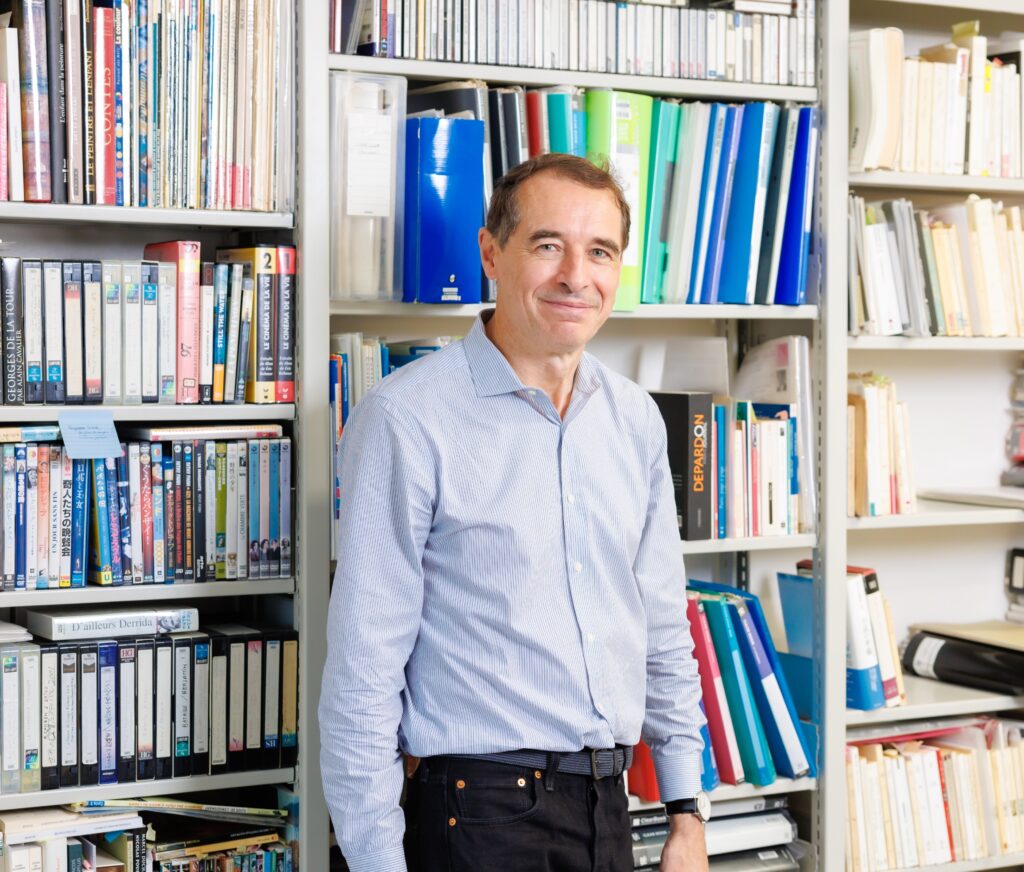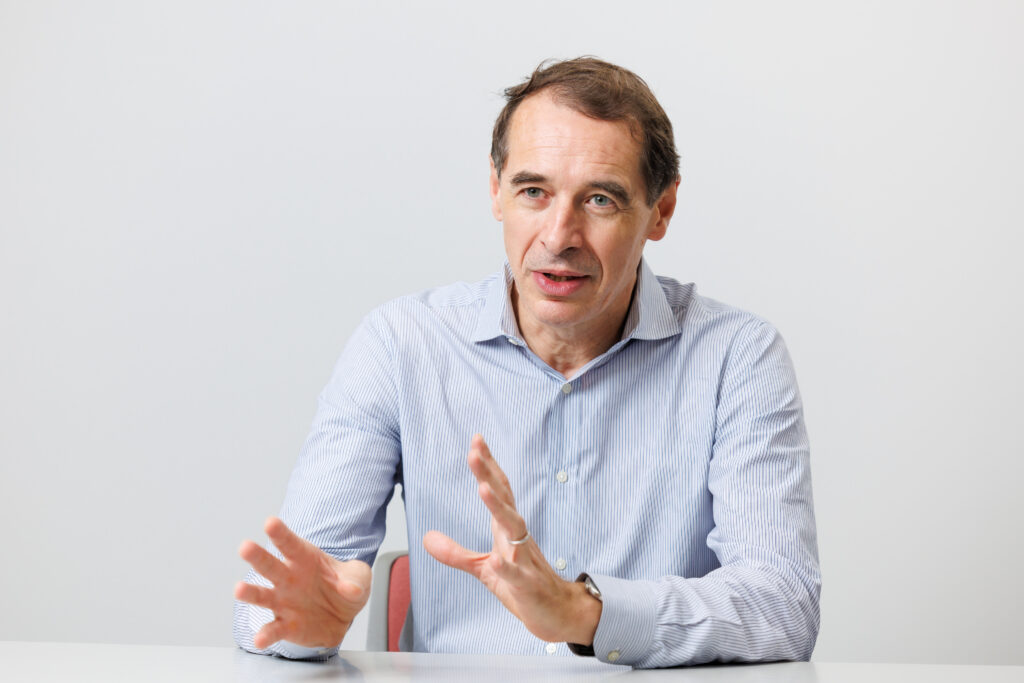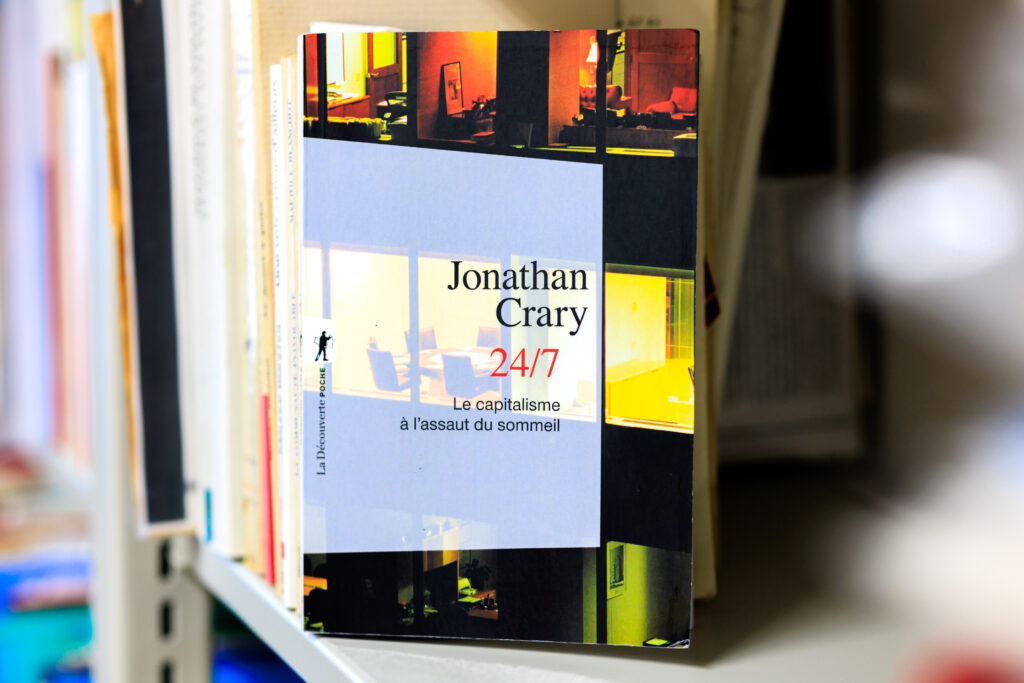
Specializing in philosophy, Professor Herve Couchot of the Faculty of Foreign Studies explores the intricate relationship between aesthetics and politics. His current studies encompass issues including the night, excessive lights, and co-existing with animals and insects. Inspired by captivating questions from everyday life and classroom interaction, he delves into them through an aesthetic and political perspective.
The underlying theme of my research is the relationship between aesthetics and politics, as explored by prominent philosophers such as Friedrich Nietzsche, a 19th-century German scholar. With continued relevance today, my research focuses on issues associated with this concept in our daily lives.
For example, a topic I explore with students in my philosophy seminar is the essence of night – a theme which intertwines aesthetics and politics. Night contains an aesthetic dimension through the absence of light; thus, selecting lighting elements is a key aesthetic consideration. Furthermore, night holds political significance to democracies. Political gatherings and movements often occur in darkness, with limited visibility of speakers’ faces and expressions, which grants greater freedom of expression. Listeners must focus attentively without visual cues from speakers. Absence of daytime noise and distractions also enables deeper engagement with speeches and exchange of ideas.
Light pollution damages the ecosystem, democracy, and starry nights

My ongoing research project focuses on the problem of lights which encapsulates aesthetics and politics as well. The aesthetic issue of excessive lights found everywhere—in offices and schools, and on streets—contributes to light pollution, and various consequences arise from this. Urban illumination kills insects, which leads to a disruption of the food chain and broader damage to the ecosystem. Excessive lights also obstruct the starry night sky, adversely affecting the migratory patterns of birds.
Lights influence politics in various ways. First, increased demand for electricity raises questions about the future of nuclear power plants. Further, an abundance of lights can symbolize manifestations of totalitarianism. Under relentless illumination, no aspect of individuals or communities can be concealed, which deprives them of privacy. Another problem emanating from excessive lights is infringement of people’s right to enjoy a starry night, which helps foster a sense of connection to the vast universe. Conversely, reduced lights represent principles of liberty and democracy, safeguarding secrets and preserving intimacy.
It is crucial to acknowledge that lights themselves are not problematic. The issue lies in the pursuit of light epicureanism—an intense sensory experience that deviates from a balanced way of life. Excessive lights embody this indulgence. As ancient Greek philosopher Plato’s allegory of the cave suggests, obscurity holds importance in protecting us from the overwhelming impact of excessive lights.
Following the Great East Japan Earthquake of 2011, the Japanese government implemented a significant electricity consumption reduction, yielding a temporary decrease in usage. This period demonstrated the possibility of a future with reduced electricity. Embracing fewer lights, consuming less electricity, and prioritizing adequate sleep should be key considerations moving forward.
Respecting rights and spaces of animals and insects to coexist
In another study relating to aesthetics and politics, I explore the responsibilities and rights of animals and insects. Historical records reveal trials in 10th-18th Century Europe where animals and insects faced accusations of crimes like killing humans and damaging crops. These trials closely mirrored human legal proceedings, featuring animal defendants representing themselves in court with legal representatives. In one notable case, insects were accused of harming livestock and local farms, resulting in human food scarcity. The verdict was to allocate a designated land for insects to inhabit separately from humans, acknowledging that their invasion of human spaces stemmed from their food scarcity. This recognition highlighted the importance of mutual respect and boundaries between humans and insects.
These historical cases remain relevant as we face similar challenges today with animals and insects encroaching upon human habitats, causing fatalities and crop destruction. Preserving natural habitats and reevaluating our perception of responsibility are vital for coexistence and protecting the natural world.
Opportunities abound to find research topics in daily life and the classroom
My research originates from personal encounters with captivating questions that inspire me to explore further. My interest in lights started by me wondering, “Why is my house the only dark one in the neighborhood at night?” This initial curiosity led me to look into various aspects associated with lights.
Interaction with my students in the classroom also generates thought-provoking questions that hadn’t crossed my mind before. Seminars guide students in finding their research topics, and also expose me to potential research areas. I believe teaching plays a vital role in shaping my own study.
The book I recommend
“24/7: Le capitalisme à l’assaut du sommeil”
by Jonathan Crary, published by La Découverte

The author is a philosopher and specialist in art history. In this book, he analyzes the nonstop demand for work in modern societies and social problems caused by working 24/7, including the relationships between work and night. It provides students with some issues they can relate to in their lives. Originally published in English, it has been translated into different languages, including Japanese and French.
-
Herve Couchot
- Professor
Department of French Studies
Faculty of Foreign Studies
- Professor
-
Herve Couchot earned his DEA / Master 2 in Philosophy from University of Paris 1. After working at Tokyo University of Foreign Studies for three years and the University of Tokyo for seven years, he joined Sophia University in 2008.
- Department of French Studies
Interviewed: June 2023